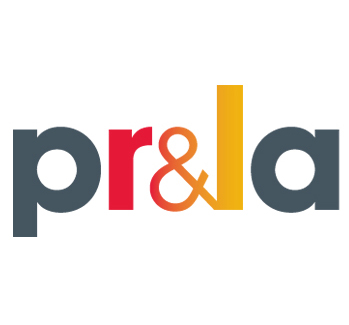State Items
Second Half of Session has Begun
We are officially half way through the Legislature’s two-year session. Both chambers returned to session this week to discuss legislative priorities for the year. Sen. Scarnati, President Pro-Tempore of the Senate, would like at least a vote in some form on property tax reform. Generally, revenues are coming in close to expectations so there is hope that the budget will be on time. Finally, SB 79, the minimum wage deal continues to languish in the House, as Republicans push back on being forced to support an increase without a better trade for it. Finally, 2020 is a key election year, which means all members of the House and half of the Senate are up for reelection, and you better believe they already have their eyes on what votes they need to make it through their individual primaries and general election.
Speaking of Minimum Wage
In November, the Senate passed minimum wage legislation (SB 79) by an overwhelming vote of 42-7. The legislation, which stemmed from weeks of closed door negotiations, contains the following provisions:
- Increase the minimum wage from $7.25/hour to $9.50/hour over the course of 2.5 years:
– $8/hour on July 1, 2020
– $8.50/hour on January 1, 2021
– $9/hour on July 1, 2021;
– $9.50/hour on January 1, 2022. - The tipped wage is preserved at $2.83/hour.
- Credit card service charges may no longer be deducted from tips.
- The wage is not tied to inflation, so it will not increase automatically, and state preemption is preserved so municipalities may not have a different wage than the state standard.
Because of this move by the Senate, the Governor pulled back his proposed overtime regulation in hopes that the House would vote on the bill.
So far, the House has refused to vote on the bill.
Because of the House’s inaction, the Governor has requested the Independent Regulatory Review Commission (IRRC) to consider his proposed overtime regulation on January 31. The proposal would increase the salary threshold for exempt employees to $45,500 by January 2022 and then increase it every three years according to inflation. If the House does not act on the minimum wage deal, the overtime rule will take effect.
Where Do We Go From Here?
By now, PRLA has requested that you reach out to your House members and urge their support of the compromise. Because you all will have done so (fingers crossed), hopefully we are all celebrating this minimum wage compromise and pull back of the overtime regulation!
Alcohol Legislation
The Senate Law & Justice Committee is slated to consider a slew of bills and initiatives before the legislature breaks for budget hearings in February. As of now, the following PRLA priorities are included in the proposed package of bills:
- HB 1617 (Staats–R, Bucks): Would allow H licenses in existence before 1949, that have obtained a room exemption, to convert to a Restaurant license for a fee of $30,000.
- HB 896 (Regan–R, Cumberland): Would allow licenses that do not receive bids in the PLCB license auction to be sold through a statewide auction. Only one new license could go into a county per year.
- Establishment of a decibel level for noise for all licensees, as opposed to the current provision that allows a violation to be given if noise is heard at the property line.
- Eliminates the current requirement that all bottles need to be either broken if they are not recycled or defaced if they are.
- Allows for the delivery of wine, similar to delivery of beer.
- Allows wine sold for off-premise consumption to be sold at a different price than wine sold for on-premise consumption.
- There is no guarantee that all of these priorities will be considered at the Law & Justice Committee meeting, but they have made the preliminary list for consideration.
Food Safety Certification
In 2019, the Pennsylvania Department of Agriculture sent letters to licensed food establishments alerting them to an upcoming food safety certification change. The change would require someone with a certification to be on the premises at all times rather than being accessible at all times. This change requires the Department to go through the regulatory process—a process that takes, in many cases, over a year. As of yet, the Department has not submitted the proposed regulations to make the change so the earliest this would take effect is 2021.
Federal Items
Federal Salary Threshold Took Effect January 1
As of the stroke of midnight on January 1, the federal threshold for salaried employees increased to $35,568/year. Make sure any employee that meets the exempt employee standards is paid above the salary threshold.
European Tariffs
The Trump Administration is considering proposing tariffs up to 100 percent on wine from the European Union (EU), and French sparkling wine and champagne, as well as olive oil, cheeses, and other products from the EU. The tariffs are in response to disputes with the EU over large civil aircraft and French digital services taxes that are completely unrelated to the food and beverage industries. If you have not engaged with your federal representatives, it is important that you do so.
Priorities/Fixes Included in the Federal Spending Plan
The following PRLA priorities, on behalf of the National Restaurant Association and American Hotel & Lodging Association, were addressed by Congress before they recessed in December:
- Health Insurance Tax (HIT): Permanently repealed HIT, which would have cost Pennsylvania insurers over $5.3 million next year had it not been repealed.
- Cadillac Tax Repeal: the 40 percent tax that would have been assessed on employers that offer a “Cadillac” health insurance plan has been permanently repealed.
- Work Opportunity Tax Credit (WOTC): The WOTC, which is a tax credit for employers who hire employees from certain target groups that typically face barriers to employment, has been extended.
- H-2B Visa Relief: Allows DHS to more than double the current 66,000 cap on H-2B visas.
Brand USA Reauthorization: Brand USA, the public-private partnership that markets the U.S. internationally is expected to be renewed for another year. - Terrorism Risk Insurance Reauthorization (TRIA): TRIA has been reauthorized for seven years.
Local Items
Pittsburgh—Paid Sick Leave
The City of Pittsburgh has announced paid sick leave and enforcement will take effect March 15, 2020. Paid sick leave impacts every business in the City of Pittsburgh.
Philadelphia—Short Term Rentals
As listings on Airbnb and VRBO continue to grow in Philadelphia, larger companies like Sonder and StayAlfred are beginning to lease entire buildings to operate short term rentals. PRLA, in conjunction with the Greater Philadelphia Hotel Association, is working on legislation that will create a registry requirement and curb these illegal rentals.
Philadelphia—Bag Ban
Philadelphia City Council passed legislation that would ban plastic bags by a vote of 15-2. This legislation does the following:
- Bans plastic bags that are less than 2.25 mils thick or made through a blown-film extrusion process.
- Paper bags may be used as long as:
– They contain no growth fiber.
– They contain a minimum of 40 percent post-consumer recycled content.
– Displays the word(s) “Recyclable” or “Recycled Content” in a highly visible manner and is labeled with the name of the manufacturer and the percentage of post-consumer recycled content of the bag in an easy-to-read font size. - The Ordinance will take effect July 2.
Philadelphia—Mandated Scheduling
Philadelphia’s mandated predictive scheduling law will take effect April 1, 2020. The legislation requires businesses to:
- Guarantee a certain number of hours and consistent schedule per week at the time of hire.
- Post schedules 2 weeks in advance and require predictability pay if the schedule needs to be changed at any point within the two week period.
- Offer available hours to all existing employees before a new employee can be hired.
Any violation of the law results in presumptive damage to the impacted employees and significant fines/litigation to the business. •













